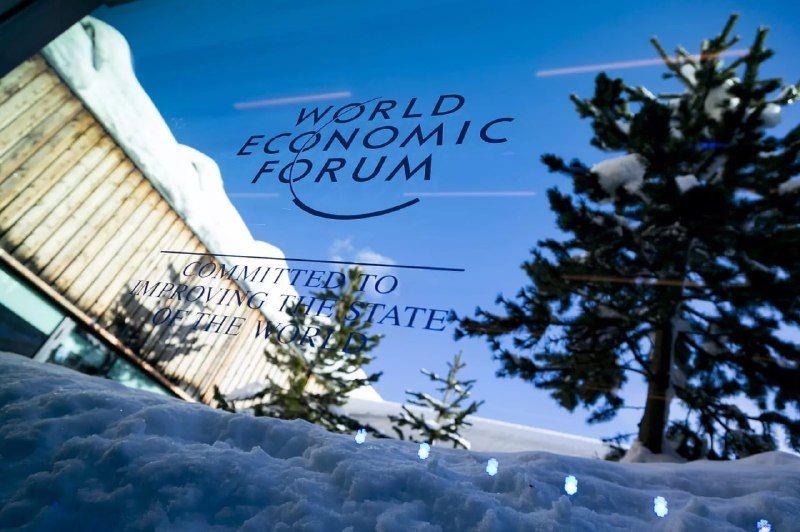
Azerbaijan Among Global Leaders Converge At Davos To Tackle Key Challenges & Opportunities
The 55th annual Davos World Economic Forum has commenced in Switzerland under the theme“Partnering for a Smarter Century.” The forum, which began today, will run until January 24 and features the participation of heads of state, government officials, international organizations, business leaders, and representatives of civil society.
President Ilham Aliyev of Azerbaijan, who was specially invited by Klaus Schwab, the Executive Chairman of the World Economic Forum in Davos, is also attending this prestigious event, joining other global leaders to discuss key challenges and opportunities for sustainable development and innovation.
This year's forum differs significantly from previous gatherings in terms of its main goals, adopting a more strategic and specific approach to key topics such as artificial intelligence, climate change, human capital, and technological innovations.
For instance, while the development of technology was broadly discussed in previous years, this year the focus will shift to the profound effects of artificial intelligence on society and the economy. Similarly, while climate change has always been a priority, the 2025 forum will emphasize concrete solutions through innovative partnerships and green industry development.
A notable shift is also expected in discussions about human capital. Unlike previous forums, which primarily addressed global economic issues, this year will prioritize targeted investments in human capital. Furthermore, new economic models are on the agenda, moving beyond traditional concepts of sustainability to explore non-traditional sources of growth.
This year's forum focuses on five critical areas:
-
Redesigning development – Identifying new
growth sources for resilient economies.
Industries in the knowledge age – Balancing
short-term goals with long-term strategies for industrial
transformation.
Investing in human capital – Promoting
public-private investments for modern and sustainable
societies.
Protecting the planet – Advancing energy,
climate, and nature goals through partnerships, financing, and
technology.
Rebuilding trust – Addressing societal
divisions, geopolitical complexities, and trade challenges by
fostering collaboration.
Over 1,600 business leaders, including over 900 of the world's top CEOs and Chairs from the World Economic Forum's Members and Partners, will also participate, over 120 of which are Global Innovators, Tech Pioneers and Unicorns who are transforming industries.
"More than 170 leaders from civil society and the social sector – from labour unions, non-governmental organisations, religious and indigenous communities, as well as experts and heads of the world's leading universities, research institutions and think tanks – will participate in the meeting," the WEF also noted in a press release.
More than 160 members of the Forum's communities, including the Unicorn and Technology Pioneers communities, the Community of Global Shapers, the Forum of Young Global Leaders and the Schwab Foundation for Social Entrepreneurship will also attend to showcase local innovations and solutions to global challenges.
Key statistics highlight the forum's global reach, with over 230 sessions, nearly 3,000 participants from more than 130 countries, and attendance by 60 heads of state, 350 public figures, and over 900 business leaders.
Historic background
The World Economic Forum (WEF) is an international advocacy non-governmental organization and think tank, based in Cologny, Canton of Geneva, Switzerland. It was founded on 24 January 1971 by German engineer Klaus Schwab.
The foundation's stated mission is "improving the state of the world by engaging business, political, academic, and other leaders of society to shape global, regional, and industry agendas".
The foundation is mostly funded by its 1,000 member multi-national companies.
The WEF is mostly known for its annual meeting at the end of January in Davos, a mountain resort in the canton of Graubünden, in the eastern Alps region of Switzerland. The meeting brings together some 3,000 paying members and selected participants – among whom are investors, business leaders, political leaders, economists, celebrities and journalists – for up to five days to discuss global issues across 500 sessions.
Aside from Davos, the organization convenes regional conferences. It produces a series of reports, engages its members in sector-specific initiatives and provides a platform for leaders from selected stakeholder groups to collaborate on projects and initiatives.
The World Economic Forum and its annual meeting in Davos have received criticism over the years, including allegations of the organization's corporate capture of global and democratic institutions, institutional whitewashing initiatives, the public cost of security, the organization's tax-exempt status, unclear decision processes and membership criteria, a lack of financial transparency, and the environmental footprint of its annual meetings.
Legal Disclaimer:
MENAFN provides the
information “as is” without warranty of any kind. We do not accept
any responsibility or liability for the accuracy, content, images,
videos, licenses, completeness, legality, or reliability of the information
contained in this article. If you have any complaints or copyright
issues related to this article, kindly contact the provider above.

















Comments
No comment